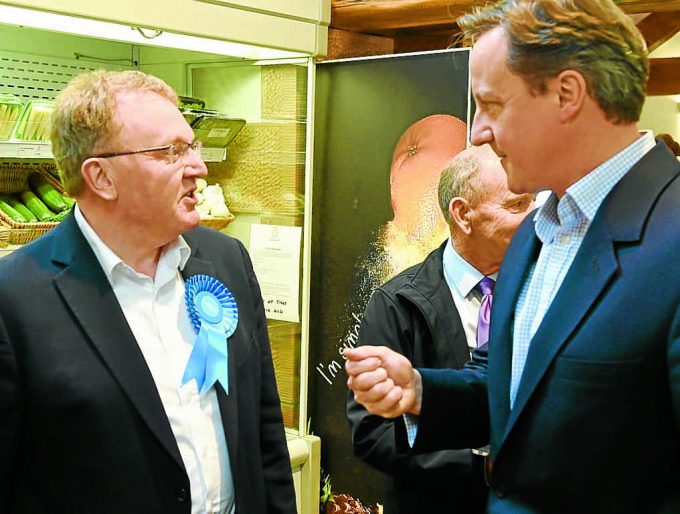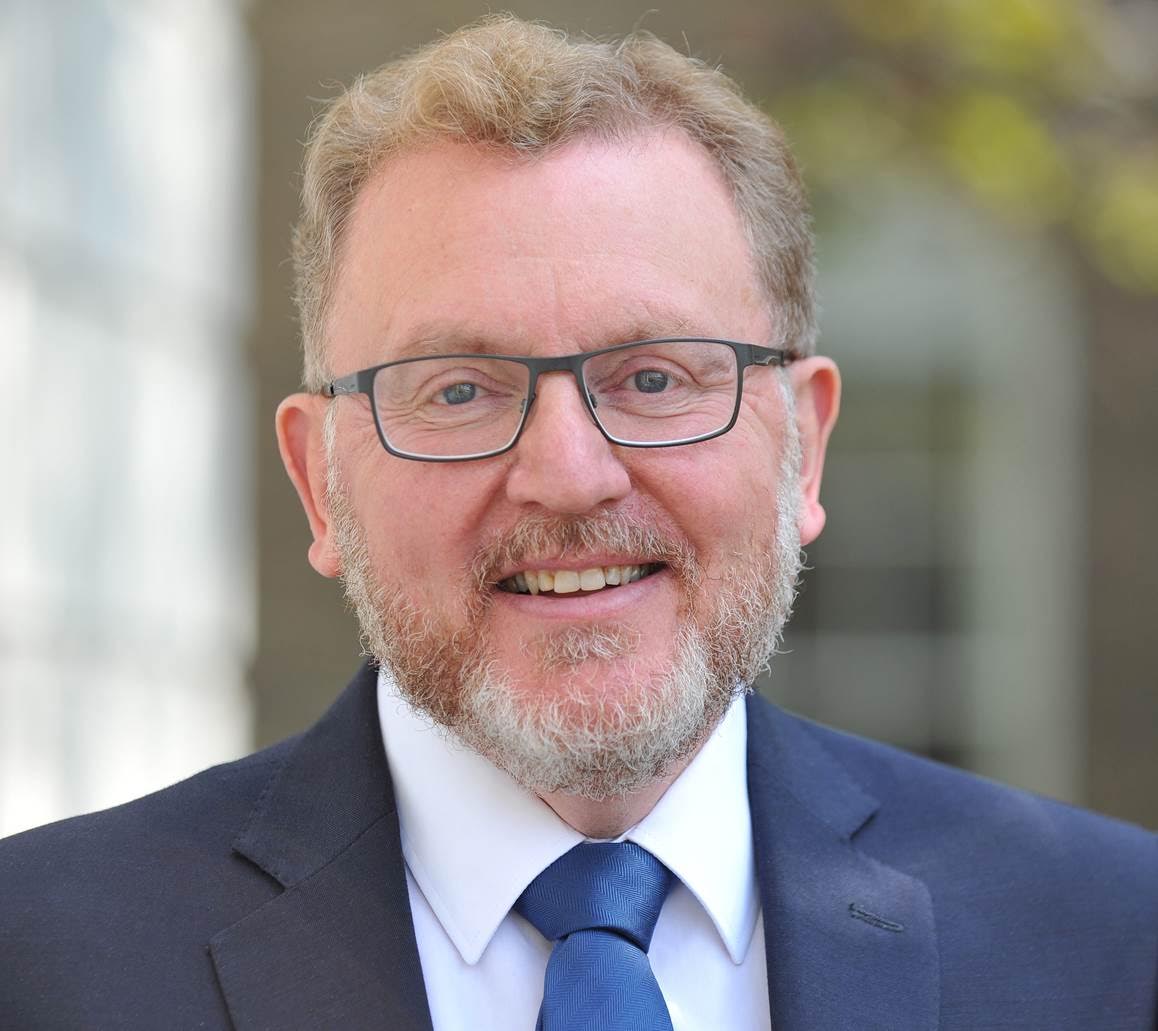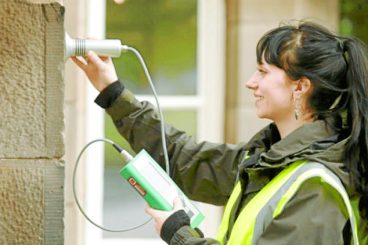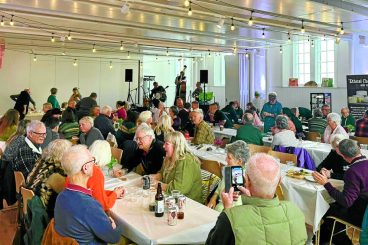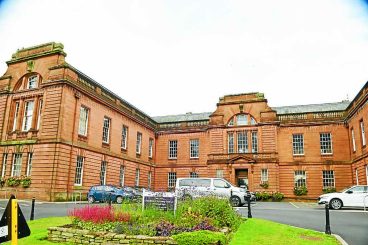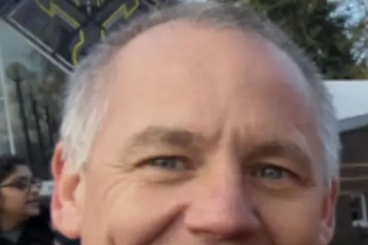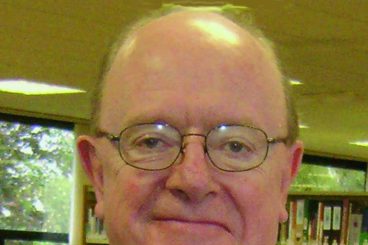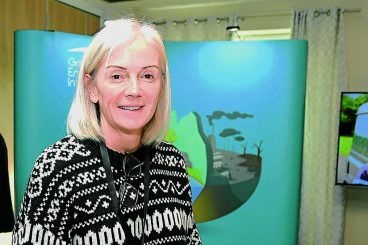LIFE has turned on its head in the last few weeks for Dumfriesshire MP David Mundell following the appointment of Boris Johnson as Prime Minister. For the first thing the new PM did was clear out the Cabinet – and that included replacing Mr Mundell as Scottish Secretary.
After more than 14 years in frontline politics, including the last four and a half as Secretary of State for Scotland, he now finds himself on the back benches for the first time, although he will keep his privileged position as a privvy councillor.
He lists his highlights from his time in the Shadow Cabinet and at the heart of government as the people he has met and the opportunities he has had. Standout moments were taking part in the March of Light for Jane Haining and other Holocaust victims in Budapest earlier this year and representing the UK government at the Davies Cup final in Belgium when Britain.
“To have travelled extensively to promote Scotland and Scottish interests has been a highlight. It’s amazing to see the reach Scotland has around the world,” said Mr Mundell. “It’s a huge honour and privilege, it it really is, and every day I walked up Downing Street and through the door of Number 10, I always appreciated it and the significance of it.
“When growing up in Lockerbie that would have seemed impossible. At school in my teens I was very interested in politics but going from that to being an MP and a Cabinet Minister, I did not see how the dots joined up.”
He is also proud of the Scotland city and growth deals that have been secured, particularly the £400m Borderlands deal, as well as the Scotland Act in 2016, saying: “That was a very significant thing as it implemented the Smith Commission and gave tax and welfare powers to the Scottish Parliament. I am not keen on paying more tax but Holyrood making those decision and being accountable for them was a huge piece of legislation which we in a small department took through parliament. That was a major thing.”
A former solicitor, his political career started as a councillor in 1984 and then he was one of the first batch of MSPs at the new Scottish Parliament in 1999. From Holyrood, he switched to Westminster and was elected for the Dumfriesshire, Clydesdale and Tweedale seat in May 2005, with a 9441 majority. After 14 years, he says he’s still driven by the same thing as when he first became an MSP, “trying to make a positive difference”, adding: “In four and a half years of being Secretary of State for Scotland the most positive difference I could make is keeping Scotland in the UK. For most people living locally it was the most important thing I could be doing and I was very lucky I had the opportunity to be in a place to do that.
“One of things I’m most pleased about in leaving office is that, up until the beginning of summer, there had been no significant change support for independence, despite everything. We will have to see if that continues.”
Brexit has dominated his work since the 2016 referendum, in which he voted to remain. Explaining that choice and his thoughts since, Mr Mundell said: “I voted remain partly because I thought it would be a hugely difficult and divisive process in leaving the EU. I had not been a great lover of the EU, particularly of the bureaucracy that came with it. I did not come from an ideology perspective.
“I’m a democrat and accepted the outcome and that we have to move on. I respect the result of the democratic process.”
The MP has been at the heart of the Cabinet, and taken part in many meetings, over the last year as they have tried to get Theresa May’s Withdrawal Agreement through and as Parliament has wrestled with the leaving process. And he says Brexit has been all consuming, and will continue to be so until October 31.
“In December when we were due to have the first so called meaningful vote, there was a hope in the Cabinet that the vote would be passed,” he recalled. As such, he was against delaying that vote and said: “It was a big mistake. Opposition to the vote built up rather than diminished from that point on. It just proved impossible to get the deal through and people painted themselves into corners.
“Clearly people had reservations about the deal but I still think it will come to pass that this deal was the best in which we could leave the EU. I’m still of the view the best outcome would have been to get out of the EU on 29 March then if people had concerns about the nature of the arrangement, there could have been negotiations.” And he beliefs many of his constituents agree, saying: “People come to see us about Brexit, it’s the main political issue and obviously people come from different ends of the spectrum. Most people that I encounter locally just want it sorted and want Parliament to sort it. I do not find any real groundswell for another referendum, it would be hugely disruptive, who knows what the outcome would be and it would open up issues of if we should have another Scottish independence referendum again.”
A firm believer that no deal would be hugely damaging for the whole of the UK, he still says preparations need to be rolled out in case that happens. However, Mr Mundell now hopes that the change of PM can be a catalyst and said: “I hope that he does get a fair wind to try and take forward a deal, which I believe is his intention.
“The best way to avoid no deal is to have a deal. It will have to be a new deal now. I hope that he can get that. The EU have to take into account what’s happened in the UK, I cannot believe the EU want this to go on indefinitely, it’s not good for them, it’s a huge distraction for them, so I hope there could be some movement.”
And he also hopes that his parliamentary colleagues will take a different tack: “Too many people boxed themselves into a position too early in the process and could not get out of it. This was a situation that needed compromise. It is ridiculous for people to demand that people vote against no deal, the very same people who voted down a deal. Some people have very dogmatic views though, for Labour it’s a General Election and the SNP have their independence agenda.”
But acknowledging Parliamentary arithmetic, he’s pragmatic that a General Election is likely later this year and revealed he would stand again locally, if selected. In the meantime, he’s heading to Alaska for a holiday – the 49th US state he’s visited. And he’s taking time to consider his back bench role, although he’s adamant the only group he’ll be joining is the Scottish Tories. Mr Mundell added: “There’s really only one issue dominating everything and that’s Brexit. Until October 31 it will be all consuming and there’s no way round that. As a backbench MP, I would want to be absolutely clear that they are being understood.”
Local issues will also be more of a focus and he said: “When people come to see us through the surgery tour, it’s the state of the roads, poor broadband and excessive windfarm development that are important to them. So whilst sorry to be gone from Government, I’m far from downhearted. I have more time for my beautiful, but vast constituency.”
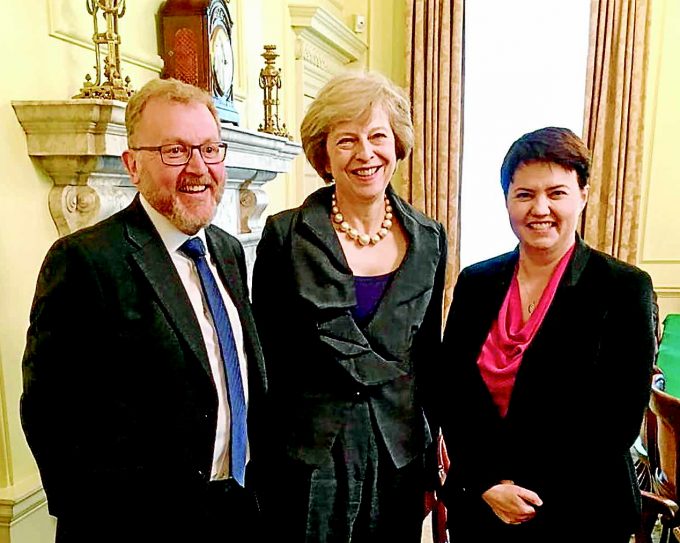
David Mundell with Theresa May and Ruth Davidson
The differences in Prime Ministers
AS a staunch supporter of Theresa May, David Mundell was sad to see her leave Number 10 last month and believes she had an impossible job. He said: “In the history of this I think she will get a positive reflection on her efforts. Even her biggest opponent cannot deny her sense of duty, public service and the huge effort she personally put in to try and resolve it on a basis that would keep all Conservatives on side, not to cause huge division and split in the party. She tried incredibly hard to do that.
“Her deal, ultimately people will see was probably the best basis on which we could have left. But, as she recognised, at the end she could not get even a hearing and that was the problem.”
Revealing she is a whisky fan, he presented her with a bottle of Man of Words made by the Annandale Distillery as a leaving gift and says they will keep in touch: “I was a supporter of her from the start of her campaign to become leader and right to the end. I always found she was committed to what she called the precious union, keeping the UK together, and so I found her very positive in relation to Scotland.
“She was someone I had relatively easy access to, despite all the issues that she was dealing with, and I always found her warm with a sense of humour and a very caring person. But she was a private person and didn’t wear her heart on her sleeve.” He added: “She sent me a lovely note when my mother died suddenly. “I will keep in touch with her.”
Meanwhile, he describes David Cameron, his first boss, as ‘very different’, and said: “He had his Cameroon agenda and a long term plan for economy. Everything was very managed and ordered in that period, sometimes too much so.
“I always found him very warm and approachable. I very much regret how David Cameron’s premiership has become overwhelmed by the whole Brexit debate. He had lot of good things, he was a very good PM and was a fundamental part of the 2014 independence referendum.”
Turning to the new incumbent, Boris Johnson, Mr Mundell revealed they first met when the former unsuccessfully stood for rector of Edinburgh University, which he advised against. Their paths didn’t cross much in Parliament after that and they were only briefly in the Cabinet together. He admits Boris was not his ‘first choice’ for leader – he backed Gove and Hancock – but said: “He won fair and square and I respect that.”
The pair met a couple of times during the leadership contest for a debrief on Scottish issues and Mr Mundell describes those meetings as ‘perfectly amicable’. Explaining his own announcement that he would be willing to serve in a Johnson government, despite voting against him, the MP said: “Ruth Davidson was very keen I continued to do that, as were a number of MP colleagues, to provide continuity and stability and with the experience I have in dealing with the very challenging environment in Scotland . . . but I thought it was unlikely.” So he wasn’t surprised when his colleague, and neighbour, Alister Jack was appointed to replace him.
“In my final meeting with Mr Johnson as Secretary of State for Scotland, which was perfectly amicable. he made clear that he wanted his own person in the job and he’s perfectly entitled to do that,” said Mr Mundell. “I actually think what is important is that the Scottish Secretary has the PM’s ear, that’s a really important part of doing that job and it’s very difficult to achieve anything without it, and Alister does so that’s a good thing and his views on Brexit are well known.”
